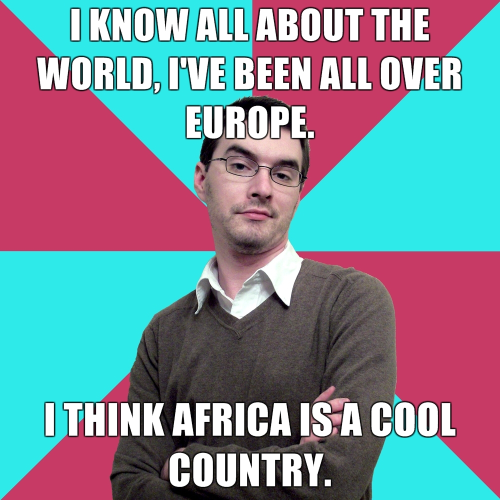In June 2012, at the
height of Spain's financial crisis and whilst negotiating terms of a
bailout for Spanish banks, Spanish Prime Minister Mariano Rajoy sent
a text message to his finance minister urging him to hold out for a
good deal. The text read: “ we are the number four power in Europe.
Spain is not Uganda”. The Spanish Prime Minister, like most people,
assumed that a well known European country like Spain would be better
off than a little known African country like Uganda. But contrary to
that impression, it turned out that Uganda's economy was in a significantly better state that Spain's, with lower unemployment,
higher GDP growth and no need for a bailout. I bet you didn't know
that!
For a while now, many
commentators have lamented the lack of balance in Western media when
it comes to stories out Africa. They argue that you are more likely
to see adverts asking you to donate £2 a month to support starving
African children, stories about civil wars and corruption or a
documentary about wildlife and the 'beauty of Africa' than to hear
about innovation, Africa's contribution to science, technology and
other aspects of life that other continents get credit for.
There is rarely a
mention of the rate at which many African economies are growing and
how many European businesses are annexing to Africa in a bid to turn
a profit as Europe continues to face economic difficulties. Barely
any column inches dedicated to the growth of countries like Ghana and
Nigeria, who are making huge strides in business, leading to a repatriation of many indegenes who had previously made their home in various
other parts of the world
Corruption is
undoubtedly still a problem but compared to how bad things used to
be, huge strides have been made in the right direction and things are a lot better. But when you ask many, they can hardly complete a
sentence about anything concerning Africa without making a reference
to corruption and civil war etc, as if no such thing ever happened or
is still going on in other parts of the world.
Also, when it comes to telling the story of early interactions between Africans and the rest of the world, the impression is generally that Africans were naked, primitive novices who were far removed from what was happening in the outside world. No mention of the likes of the people of Oyo and Edo Empires in Nigeria, who had Portuguese-speaking mathematicians among their people when the British first made contact with them and had been doing business with Europe as far back as the 15th Century. Rarely a mention of the Library of Alexandria in Egypt, which once stood as one of the most significant in the world before it was destroyed
The list of stories
about the history of the African continent as a whole, where it is now
and prospects for the future is as boundless as you'll find about
any other continent. Not to talk of stories of individuals, peoples
and countries.
To reduce Africa to a
single story of corruption, diseases, poor people, war and pretty
wildlife would be just as ignorant as reducing South America to
drugs, kidnappings and problems with gang culture, and to reduce
Europe to Nazism, Kosovo, a past filled with pillaging and crippled
economies that show no sign of getting back to their feet any time
soon.
But perhaps like Europe
and some other parts of the world have done, Africa needs to take
control of its own image and begin to tell its own story a bit more.
To embark on a charm offensive with the aim of changing minds and
influencing opinions, and to put specific effort towards redressing
the issue of balance. The longer we let others tell our
story, the more they will leave out. Not out of malice or ill will
but because it is not really their story to tell.
There is more to Africa than wildlife, diseases, poor people and corruption but unless Africans begin to tell the world the other stories, the rest of the world will ever know.


No comments:
Post a Comment